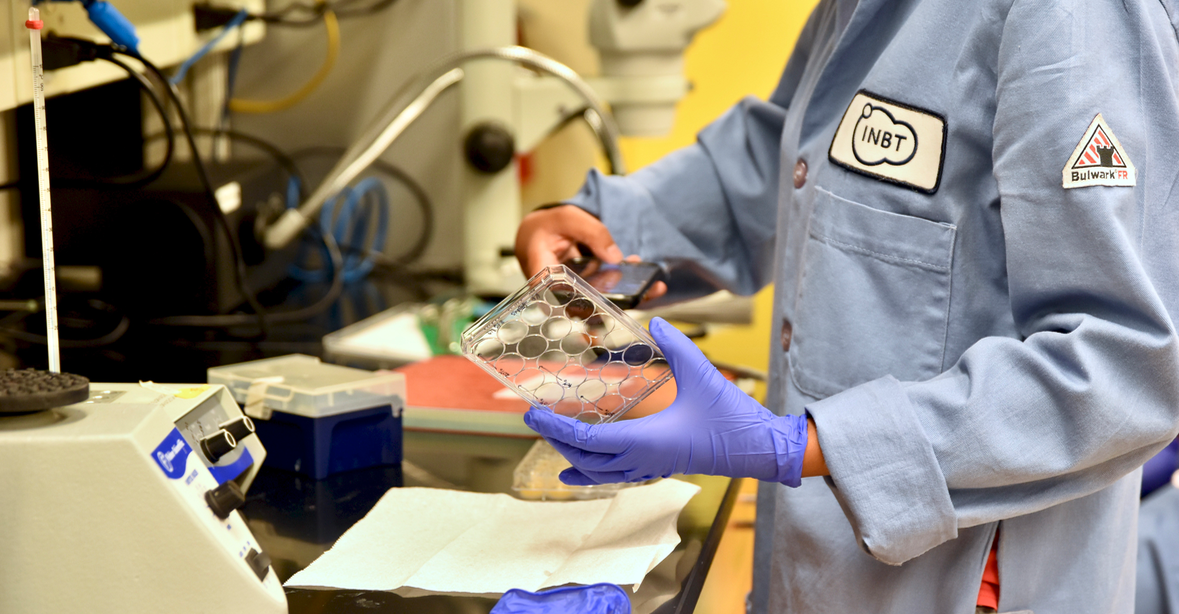What is nanobiotechnology?
Nanobiotechnology is a research field that combines the knowledge and tools of the physical sciences, life sciences, biology, engineering, public health, and medicine at the molecular scale to seek new solutions to health and environmental problems. This exciting field is generating new therapies, devices, diagnostic tools, and deeper knowledge about the relationship between cells and disease. It’s a tiny science with huge research and technological potential.
How small is nanotechnology?
Very small. A single nanometer (nm) is about 100,000 times smaller than the width of a human hair. Nanotechnology manipulates matter less than 1,000 nm long. Atoms and molecules are the building blocks for nanotechnology and are typically 0.1 nm to 10 nm long. Scientists work at scales smaller than conventional optical microscopes allow, so manipulating matter at these sizes require specialized tools and devices.
Why was the Institute for NanoBioTechnology created?
To solve complex scientific and technological problems associated with the diagnosis and treatment of diseases, multidisciplinary teams must work on these problems together. The interface between nanotechnology and biotechnology involves synthesis and fabrication of materials and devices, surface and molecular engineering, in vitro studies, animal studies, and clinical trials. To be successful in nanobiotechnology, institutions need a strong base in engineering, the physical sciences, the life sciences, public health, and medicine. Johns Hopkins University is one of the few institutions in the world with all of the necessary components to create a successful nanobiotechnology center and to establish a leadership role in this field.
Who funds the Institute for NanoBioTechnology?
Since INBTs launched in May 2006, supportive funding is provided by the Johns Hopkins Whiting School of Engineering, School of Medicine, Krieger School of Arts and Sciences, and Bloomberg School of Public Health. The INBT also has industry-affiliated programs open to companies involved in aspects of nanobiotechnology such as drug and gene delivery, biomedical imaging, medical diagnostics, medical instrumentation, cell sorting and separations, biosensors, and materials and chemicals. Individual research and education projects are funded by federal agencies, private foundations, and philanthropy.
How can I support the Institute for NanoBioTechnology’s initiatives?
Anyone can support the research efforts of the INBT’s faculty and students. Without the support of individuals like you, we could not accomplish our mission. Any size donation is welcome and more information is found on our support webpage.



